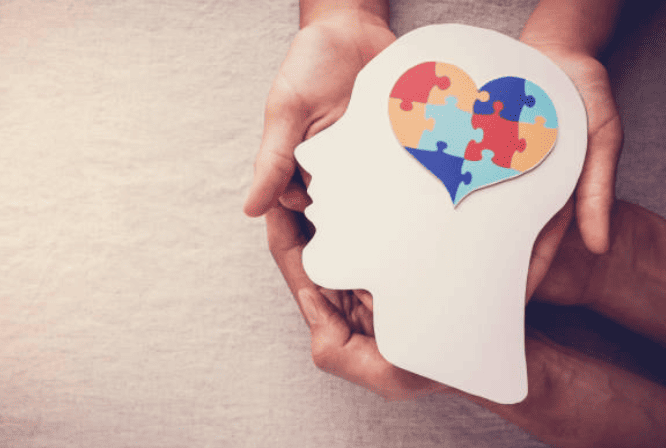Mental wellbeing at work is no longer optional—it’s foundational. In an environment of constant change, rising stress levels, and growing expectations, employees are looking for more than just a paycheck. They want to feel supported, seen, and mentally well.
Yet many companies are still stuck in reactive mode—addressing burnout after it happens, offering resources only once a crisis emerges, and mistaking performative gestures for real solutions.
At Woliba, we believe there’s a better way: a preventive, human-centered approach that integrates mental wellbeing into daily life at work. Before we dive into how to make that happen, let’s explore why mental wellbeing deserves a permanent seat at the table.
What Is Mental Wellbeing at Work?
Mental wellbeing at work is about more than avoiding burnout or managing stress—it’s about helping people feel clear-headed, resilient, emotionally grounded, and engaged in what they do.
A mentally well employee is someone who:
- Can manage pressure without becoming overwhelmed
- Has a sense of purpose and optimism about their work
- Sets healthy boundaries and takes care of their needs
- Connects positively with others and navigates conflict constructively
When mental wellbeing is prioritized, employees don’t just “survive the day.” They show up with presence, creativity, and energy—fueling stronger teams and more sustainable outcomes.
The Data Is Clear: Employees Want Support
According to the American Psychological Association, 92% of workers say it’s either very (57%) or somewhat (35%) important to work for an organization that values their emotional and psychological wellbeing.
That’s nearly everyone.
In other words, employees aren’t just hoping for yoga sessions and meditation apps. They’re seeking a culture that actively prioritizes mental wellbeing—in leadership decisions, communication norms, benefits design, and workload expectations.
Common Barriers to Mental Wellbeing in the Workplace
Even well-meaning organizations often fall short when it comes to supporting mental wellbeing. Here’s what tends to get in the way:
1. Lack of Psychological Safety
If employees don’t feel safe admitting they’re struggling, they’ll stay silent—until it’s too late. Fear of judgment, retaliation, or being perceived as “weak” keeps people from seeking help.
2. Burnout Culture
Rewarding long hours and constant availability creates a workplace where overextension is glorified and rest is guilt-inducing.
3. Poor Boundaries
Remote and hybrid work have blurred the lines between work and life. Many employees feel pressure to stay online long after hours, which erodes recovery time.
4. Stigma Around Mental Health
Even with resources in place, employees may avoid them out of fear. They worry it could damage their reputation or hurt their chances for advancement.
5. One-Size-Fits-All Solutions
Mental wellbeing isn’t just about therapy—it’s about access, personalization, and options. Not every employee needs the same kind of support.
Why Mental Wellbeing Is a Business Imperative
The cost of neglecting mental health is high:
- Increased turnover due to stress and dissatisfaction
- More absenteeism and presenteeism, with employees either missing work or showing up disengaged
- Decreased productivity and slower collaboration
- Higher healthcare costs over time
On the flip side, when companies take mental wellbeing seriously, they see measurable benefits:
- Better retention
- Improved innovation and focus
- More connected and high-performing teams
- A reputation that attracts top talent
In other words, mental wellbeing is directly tied to your business outcomes.
How to Support Mental Wellbeing at Work: A Preventive Approach
Rather than responding after a problem arises, the goal should be to foster an environment where employees can stay mentally well in the first place. That means designing your workflows, tools, and culture to support resilience.
Here’s how to get started:
1. Normalize Conversations Around Mental Health
Make it clear that mental wellbeing isn’t taboo—it’s expected. When leaders speak openly about stress or share personal stories, it creates a ripple effect of psychological safety.
Woliba Tip: Use Woliba’s anonymous engagement surveys to check in on employee sentiment and mental health perceptions. Real-time data helps uncover blind spots and track progress.
2. Build Recovery Into the Workday
Breaks aren’t unproductive—they’re essential to maintaining energy and preventing cognitive fatigue. Encourage teams to step away from screens, take walking meetings, or use protected “no meeting” blocks.
Pro Tip: Employees will follow the example of their leaders. When managers model healthy boundaries, the whole team benefits.
3. Offer Resources That Go Beyond EAPs
Don’t stop at a single solution. Offer a variety of tools that support mental wellbeing in both proactive and reactive ways:
- On-demand videos on stress, mindfulness, and focus
- Short articles about emotional regulation or burnout warning signs
- Access to coaching or counseling
- Community-building activities that promote connection
Woliba Tip: Our wellness resource library includes videos, toolkits, and curated content for emotional and mental resilience—available anytime, anywhere.
4. Reduce Overwhelm with Smarter Systems
Sometimes, the problem isn’t emotional—it’s structural. Overloaded workflows, unclear priorities, or unrealistic deadlines can chip away at mental health.
Action Idea: Conduct a “mental load audit” each quarter to evaluate workload balance and identify systemic stressors.
5. Train Managers to Be Mental Wellbeing Allies
Managers have the most direct influence on an employee’s day-to-day experience. Invest in training so they can:
- Spot early signs of mental fatigue or disengagement
- Encourage conversations without judgment
- Set clear goals while respecting personal limits
Woliba Tip: Use recognition and performance insights to identify when teams may be struggling and initiate coaching conversations before issues escalate.
Culture Matters: Embedding Mental Wellbeing Into Daily Life
If you want long-term impact, mental wellbeing must become part of your company’s DNA—not a seasonal initiative.
Ways to Make It Stick:
- Tie wellbeing to company values and performance reviews
- Recognize employees for emotional intelligence, adaptability, and boundary-setting—not just output
- Incentivize participation in wellness challenges and mental health check-ins
- Create rituals (like gratitude posts or weekly reflections) that normalize emotional expression
Woliba Tip: Our recognition and rewards platform makes it easy to spotlight behaviors that support a mentally healthy culture.
Mental Wellbeing Doesn’t Stand Alone
While it deserves focused attention, mental wellbeing is also interconnected with every other area of health:
- Physical health: Lack of sleep, nutrition, or movement can worsen mood and cognitive function
- Emotional wellbeing: The ability to regulate emotions influences how we respond to stress
- Financial wellbeing: Money stress is a top contributor to anxiety and depression
- Social wellbeing: Isolation increases risk for mental health issues; connection is protective
That’s why Woliba’s 12 Pillars framework supports all areas of wellness—because when one pillar is strong, others rise with it.
How Woliba Supports Mental Wellbeing at Work
Woliba is built to make mental wellbeing practical, proactive, and personalized. With tools that span recognition, coaching, wellness content, and real-time engagement insights, we empower HR teams to:
- Monitor employee sentiment with pulse surveys
- Deliver relevant support with curated wellness resources
- Nudge healthier habits with daily tips and reminders
- Celebrate behaviors that promote emotional resilience
- Build a culture where mental wellbeing is just part of how you do business
Whether you’re supporting remote workers, navigating change, or trying to reduce burnout, Woliba helps your organization stay mentally strong—before problems take root.
Closing Thought: Make Mental Wellbeing the Strategy
It’s easy to talk about the importance of mental health. It’s harder—but far more impactful—to redesign your workplace around it.
Mental wellbeing isn’t a side project. It’s the foundation of productivity, creativity, and human connection. And the companies that prioritize it today will be the ones that thrive tomorrow.
Ready to build a workplace that supports mental wellness from the inside out?
Discover how Woliba can help you create a culture of care, connection, and resilience.











